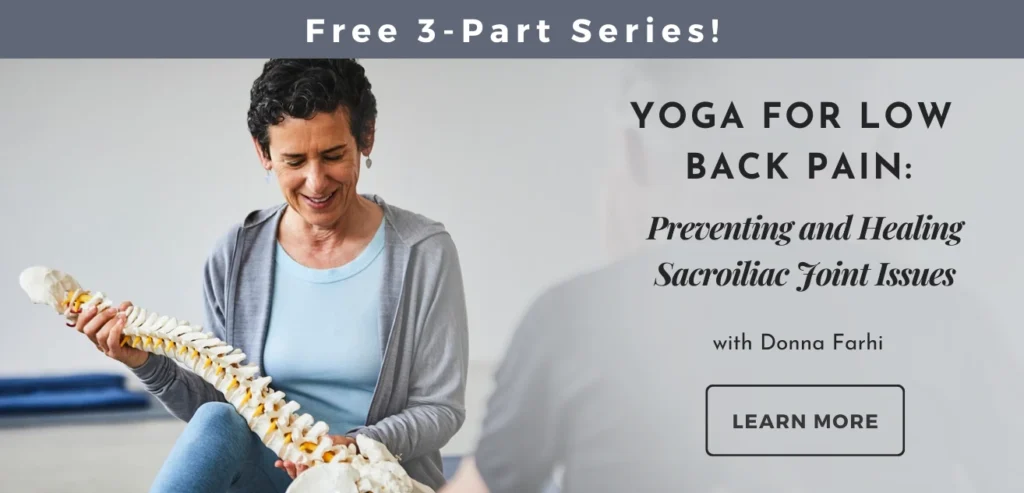Yoga for Heart Disease—Study Shows Reduced Anxiety in ICD Heart Patients

Imagine how anxiety provoking it would be to have something in your chest that shocks your heart at any time. That is the reality for thousands of people living with an implantable cardioverter defibrillator (ICD), a device that delivers electric impulses to the heart to correct an irregular heart rhythm.
A new study suggests that regular yoga practice may be linked to reduced anxiety and fewer shock-related cardiac episodes. This research is particularly noteworthy in that it provides an excellent example of delivering tailored yoga classes to meet the needs of an atypical sample of adults. Unlike many yoga studies, they were able to achieve a high degree of participation with a sample of non-traditional students, rather than experiencing a level of drop-out.
Shock-Related Anxiety: The Problem with ICDs
Individuals with ICDs often experience “shock-related anxiety”, or fear that the ICD will deliver a shock to their heart to correct an irregular heart rhythm.
Since yoga is known to reduce the stress response and increase the feeling of wellbeing, the study explored whether adults with ICDS who practiced yoga would report less shock-related anxiety than a randomized “standard medical care” control group. They also tested whether the number of DTV events, or the number of times that the ICD was needed to correct irregular heart rhythm, would be lower for those practicing yoga compared to controls.
As reported in Pacing and Clinical Electrophysiology, yoga group participants reported a “marked decrease” in anxiety, while those in the control group experiences increased symptoms. Those in the yoga group also reported greater mindfulness and self-compassion, whereas the control group decreased in both.
The expected number of DTV events was also significantly lower over time for the yoga group compared to controls. Those “participating in the yoga intervention had a 32% lower risk relative to controls for experiencing device-related firings by the end of the [6-month] follow-up period”, note the authors. Based on these results the authors concluded that, “the yoga intervention may have a role in mitigating the severity of the participants’ arrhythmic conditions”.
Tailoring a Yoga Practice to an Older Population
The 46 adults who participated in this study did not represent a typical group of yoga students. Participant age averaged 66. 3 years, and the majority (78.3%) were male. Program developers recognized that it was essential to design yoga classes that students would enjoy and find beneficial in order to stay engaged.
Participants in the yoga group were asked to attend 8, weekly 80-minute “gentle adapted yoga” classes. According to the authors, “program content was designed specifically for the ICD cardiac population based on existing yoga programs”. Classes “included movements that were consistent with daily life activity”.
Yoga classes were adapted for 3 different levels of functional ability to accommodate those who required a considerable degree of assistance to those who required little to none. Sessions included breathing techniques (pranayama), adapted physical postures (asana), and “relaxation” (yoga nidra) and meditation exercises.
In addition to attending classes, those in the yoga group were given a 30-minute yoga home practice CD and asked to practice on their own for 3 times per week.
Participants receiving standard medical care attended regularly scheduled doctor visits, received 5 monthly calls from cardiac nurses, and had the data stored on their ICD downloaded every 6-9 months.
Keys to Motivation: Making Yoga Classes Accessible to Everyone
There was a high rate of participation in the yoga group. Most students attended 7 of the 8 classes, and practiced at home reliably during the study period. This is remarkable because the majority of participants were older men.
These findings are encouraging, and suggest that those in the yoga group were motivated to practice. This may be because the classes were adapted to their unique needs, and tailored to their unique ability level, rather than being difficult or inaccessible.
This study provides a poignant example of the need for yoga teachers to adapt their classes to the needs of their students, which can provide them with the motivation and success that they need to continue despite physical or emotional challenges.
Although this study focused specifically on those with ICD’s this article suggests that yoga can be of benefit to individuals dealing with stress, anxiety, and heart disease. An increasing number of studies point to the benefits of yoga for relaxation and overall health. While a great deal more remains to be understood, the evidence for yoga as part of a healthy lifestyle is compelling.
As always it is essential that you consult your physician prior to beginning a new fitness program, and meet with the yoga teacher to make certain that the class is right for you.
Also, read...
Does Yoga Help You Adapt Better to Stress? Charting Yoga’s Effects on Heart Rate Variability
Yoga for a Healthy Heart – Research Review Charts the Benefits of Yoga on Markers of Heart Health
Understanding Heart Rate Variability: What It Is, Why It’s Important, And How To Improve It
Related courses
Yoga for Back Care and Spinal Mobility: A 4-Week Practice Series
The Psoas Connection: Core Stability for Movement, Breath & Digestion
Optimizing Your Breath: Yogic Breath for Cellular Vitality

Dr. B Grace Bullock is a behavioral health, education, and organizational strategist and policy advisor, psychologist, educator, research scientist, book author and science writer. She serves as the Director of Mental and Behavioral Health for the Oregon Department of Education.
Grace has dedicated her career to health promotion, prevention, intervention, research, and developing policies, programs, and practices that ensure that all children and families have equitable access to culturally responsive mental health services and educational supports. She champions the creation of safe, welcoming, and inclusive school systems, cultures, and climates that honor diversity and intersectionality, fully recognize all ways of being and knowing, and ensure that all belong. This means working in partnership to realize detailed, actionable policies that drive sustainable systems to change.
Dr. Bullock strives to be a trusted partner, bringing the values and principles of mind-body medicine into strategic planning, education, and health policy, and program design, development, training, and the evaluation/research of offerings and policies that promote personal, interpersonal, and systemic well-being, effective and equitable leadership, decision-making and social change.
An educator at heart, she teaches courses and workshops on strengths-based, trauma-informed, equity-centered principles and practices, interpersonal relationships, stress resilience, and clinical practice at colleges, universities, professional schools, school districts, and organizations across the USA and Canada. She has spent more than two decades teaching and studying physiological and psychological interventions to reduce stress and support resilient, healthy relationships and systems, and is the author of the acclaimed book, Mindful Relationships: 7 Skills for Success – Integrating the science of mind, body & brain. Her research has been published in numerous empirical journals and featured in Psychology Today and The Greater Good Science Center, among others. She is the science writer for Mindful Magazine and Mindful.org and former Editor in Chief of the International Journal of Yoga Therapy.
She received a BA Highest Honors in Psychology, Summa Cum Laude from the University of California at Los Angeles, an MS and Ph.D. in Clinical Psychology from the University of Oregon, and completed her clinical residency at the University of Washington School of Medicine.



